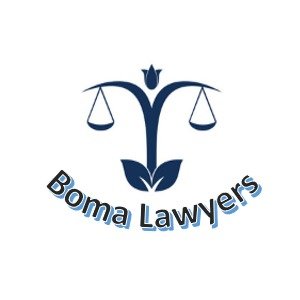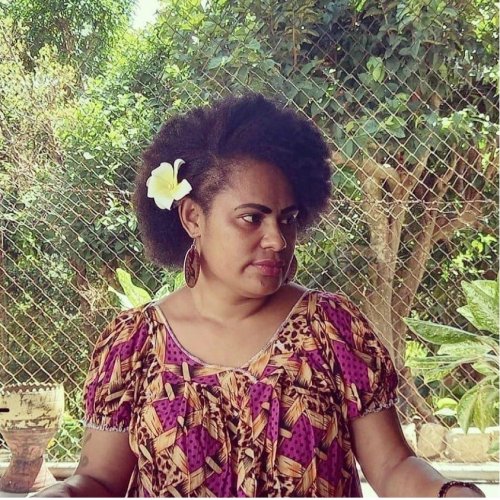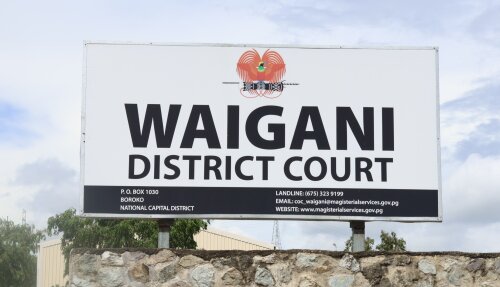Best General Litigation Lawyers in Port Moresby
Share your needs with us, get contacted by law firms.
Free. Takes 2 min.
List of the best lawyers in Port Moresby, Papua New Guinea
About Litigation Law in Port Moresby, Papua New Guinea
Litigation law in Port Moresby, Papua New Guinea involves the resolution of public and private legal disputes on matters such as contracts, torts, government regulations, and probate. This can include any form of legal dispute from civil to criminal matters. Litigation incorporates every step in a lawsuit, from the filing of the initial complaint to the final judgment or settlement. Papua New Guinea's legal system is based on the English common law system, and it acknowledges customary law for matters related to land disputes, domestic matters, and village affairs.
Why You May Need a Lawyer
Having a lawyer can be crucial if you are involved in any sort of legal dispute. Lawyers are able to study your case critically, offer advice, and represent you in court. They can help you understand the complex legal language and processes, ensure your rights are protected, and improve your chances of obtaining a favorable outcome. Whether you're dealing with a civil dispute, such as a contractual disagreement, or a criminal matter, you may need a lawyer to guide you through the intricate process of litigation.
Local Laws Overview
The laws in Papua New Guinea involve a mix between the inherited English common law and the customary law. This means, in part, that the legal proceedings are adversarial in nature, proceeding on the basis of evidence presented by opposing sides. In areas like personal injury, contract disputes, property disputes, and family law matters, local and customary laws can significantly impact the outcome of litigation. Always consult with a local attorney to best understand how these laws may affect your specific situation.
Frequently Asked Questions
1. Can I represent myself in court?
Though it is technically possible to represent oneself, it is typically advised to engage a lawyer due to the complexities of litigation and the potential consequences of misstatements or omissions.
2. What can a lawyer do for me that I can't do for myself?
A trained lawyer can help in understanding the complex legal language, file necessary paperwork, construct compelling arguments, negotiate settlements and represent you during court proceedings.
3. How long does litigation usually last?
The duration of litigation varies greatly depending on complexity of the case, the urgency, and the court's schedule. It can range from several months to a couple of years.
4. What is a settlement?
A settlement is a resolution between disputing parties about a legal case, reached either before or after court action begins. It typically involves a negotiation process and then a written agreement resolving all issues.
5. Are court proceedings public?
As a general rule, court proceedings in Papua New Guinea are open to the public. However, the courts can decide to have closed proceedings in certain situations, such as to protect the privacy of the individuals involved.
Additional Resources
The Papua New Guinea Legal Information Institute (PacLII), maintained by the University of the South Pacific School of Law, provides free online access to court judgments, legislation, and other legal materials. While it does not provide specific advice, it is a valuable resource for general information about Papua New Guinea’s legal system and its specifics.
Next Steps
If you are facing litigation, it is recommended to seek advice from a lawyer. They will help assess your case, offer advice, and if needed, represent you in court. Try to gather up all relevant documents, evidences, and information before approaching a lawyer. Preparing a summary of your issue can also be helpful. Remember, communication with your lawyer is key for a successful legal process.
Lawzana helps you find the best lawyers and law firms in Port Moresby through a curated and pre-screened list of qualified legal professionals. Our platform offers rankings and detailed profiles of attorneys and law firms, allowing you to compare based on practice areas, including General Litigation, experience, and client feedback.
Each profile includes a description of the firm's areas of practice, client reviews, team members and partners, year of establishment, spoken languages, office locations, contact information, social media presence, and any published articles or resources. Most firms on our platform speak English and are experienced in both local and international legal matters.
Get a quote from top-rated law firms in Port Moresby, Papua New Guinea — quickly, securely, and without unnecessary hassle.
Disclaimer:
The information provided on this page is for general informational purposes only and does not constitute legal advice. While we strive to ensure the accuracy and relevance of the content, legal information may change over time, and interpretations of the law can vary. You should always consult with a qualified legal professional for advice specific to your situation.
We disclaim all liability for actions taken or not taken based on the content of this page. If you believe any information is incorrect or outdated, please contact us, and we will review and update it where appropriate.















